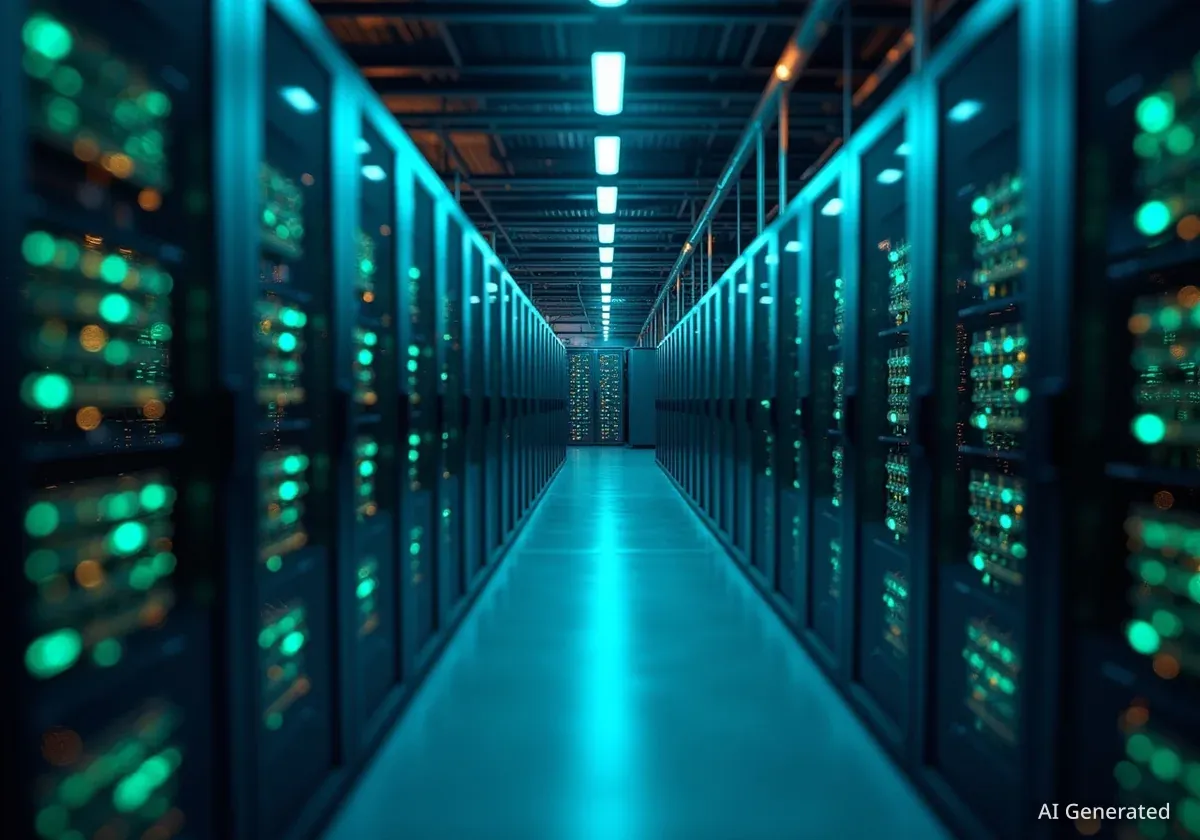Nvidia CEO Jensen Huang has stated that the demand for artificial intelligence computing has increased significantly, particularly over the past six months. This surge is driven by the evolution of AI models from performing simple tasks to engaging in complex reasoning, a shift that requires exponentially more processing power.
Key Takeaways
- Nvidia CEO Jensen Huang confirmed a substantial increase in demand for AI computing in the last six months.
- The growth is fueled by AI systems advancing from simple queries to complex, multi-step reasoning.
- Huang noted that both the computational needs of these models and the user demand for them are growing exponentially.
- Demand for Nvidia's new Blackwell platform is described as exceptionally high.
- The CEO compared the current period to the start of a new industrial revolution driven by AI.
A Sharp Increase in Computing Needs
According to Jensen Huang, CEO of the leading AI chip manufacturer Nvidia, the market for high-performance computing has experienced a dramatic upturn. During an appearance on CNBC, Huang addressed investor questions by highlighting the recent acceleration in demand.
“This year, particularly the last six months, demand of computing has gone up substantially,” Huang said. This comment immediately drew attention from the market, leading to a rise in Nvidia's shares during premarket trading sessions.
The core reason for this growth is the changing nature of artificial intelligence itself. The industry is moving beyond AI that simply answers direct questions. The new frontier is AI that can reason through complex problems, a capability that requires a far greater amount of computational resources.
From Answers to Reasoning
Early AI models, like many first-generation chatbots, were trained to retrieve information or provide direct answers to specific questions. Modern AI, often referred to as reasoning models, can perform multi-step tasks, analyze complex scenarios, and generate solutions that require logical deduction. This leap in capability is what drives the need for more powerful hardware.
The Dual Exponential Growth Phenomenon
Huang explained the current market dynamics as a unique situation where two different factors are growing at an exponential rate simultaneously. This creates a powerful cycle that fuels the demand for Nvidia's products.
The first exponential factor is the computing power required by the AI models themselves. As these systems become more sophisticated to handle reasoning, their appetite for processing power grows exponentially. Each new generation of AI is significantly more resource-intensive than the last.
“The AIs are smart enough that everybody wants to use it,” Huang explained, highlighting the second exponential factor: user demand.
Because the results produced by these advanced AI systems are so effective and valuable, their adoption is also growing exponentially. Businesses and consumers are finding more applications for these tools, creating a massive and expanding user base.
“We now have two exponentials happening at the same time,” Huang stated, summarizing the powerful feedback loop driving his company's growth. This combination of increasing model complexity and soaring user adoption creates unprecedented demand for the underlying hardware.
Nvidia's Market Position
Nvidia currently dominates the market for AI accelerator chips, with estimates suggesting it holds over 80% of the market share. The company's GPUs (Graphics Processing Units) have become the industry standard for training and running large-scale artificial intelligence models.
High Demand for the Blackwell Platform
Addressing the company's latest technology, Huang confirmed that customer interest is exceptionally strong. He specifically pointed to the company's next-generation AI platform, known as Blackwell.
“Demand for Blackwell is really, really high,” he said. The Blackwell architecture is designed to handle the massive scale of trillion-parameter AI models, offering significant performance gains over its predecessors. This makes it essential for companies building the next wave of advanced AI systems.
The platform's capabilities are tailored for the intensive workloads associated with AI reasoning, deep learning, and large-scale simulations. Its high demand underscores the industry's commitment to developing more powerful and intelligent AI.
A New Industrial Revolution
Looking at the broader picture, Huang framed the current technological shift in historic terms. He believes the rapid buildout of AI infrastructure is not just a market trend but the beginning of a fundamental transformation of the global economy.
“I think we’re at the beginning of a new buildout, at the beginning of a new industrial revolution,” Huang remarked.
This perspective suggests that the impact of AI will be as profound as previous industrial revolutions, which were driven by steam power, electricity, and digital computing. In this new era, intelligence itself is being industrialized and scaled, a process that relies heavily on the specialized processors that Nvidia designs.
This vision resonates with investors and industry analysts who see AI as a foundational technology that will reshape nearly every sector, from healthcare and finance to manufacturing and entertainment. The massive investment in AI infrastructure is seen as the necessary groundwork for this widespread economic change.
As companies across the globe race to integrate AI into their operations, the demand for the fundamental computing building blocks is expected to continue its upward trajectory, validating the optimistic outlook presented by Nvidia's leadership.





